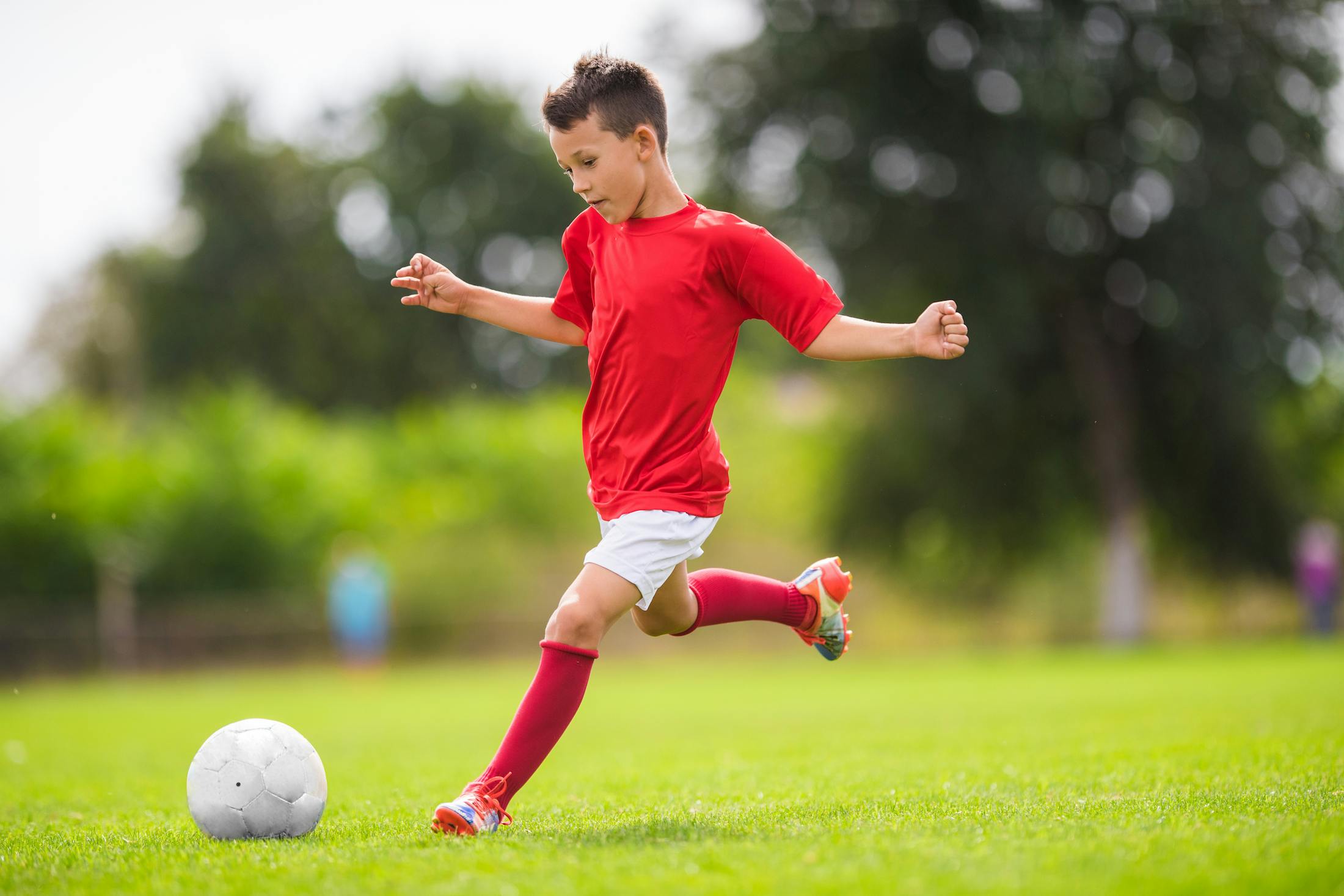Kids Heel Pain - Calcaneal Apophysitis

Kids Heel Pain, or Calcaneal Apophysitis is commonly called "Sever's Disease" BUT it is not a disease! It is the most common type of heel pain in children and is caused by inflammation at the growth plate of the heel bone (calcaneus). Usually children will present to us with pain at the back of their heel, or heels, which is usually exacerbated by sports - particularly football or soccer.
So What is Calcaneal Apophysitis?
Calcaneal Apophysitis most commonly affects children between the ages of 8 and 14 years, when growth spurts are beginning. During growth spurts, the bones will grow much faster that the muscles, and this can create an overload on the tendons and pain in the tendon or the bone.
For this condition, children can get pain at the attachment of the Achilles tendon into the heel bone, or in the Achilles tendon or in the heel bone itself.
Painful symptoms are caused by the pulling of the Achilles tendon at the attachment point, or by increased impact (hitting the ground hard) at the heel, or a combination of both.
Signs and Symptoms
- heel pain during physical exercise, especially activities that require running or jumping
- worsening pain after exercise
- limping – often in the morning, or during or after sport
- a tendency to tiptoe.
Contributing Factors for Kids Heel Pain
- Active children who have low arched or "flat feet" posture may be slightly more predisposed to Calcaneal Apophysitis.
- Children that have a higher BMI.
- Children that have recently gone through a growth spurt.
- Increased levels of physical activity for example children that have little to no rest time between sport seasons e.g cricket rolling into soccer and vice versa; or increased frequency of activity e.g training 2-3 times per week plus weekend competitions.
- Starting a different activity, or returning to a physical activity after a break.
- Calcaneal Apophysitis is most commonly associated with weight bearing activities, such as running, jumping or both. We frequently see children who play soccer and football with heel pain, but it can occur with other sports.
- Equipment or external factors – Shoes that have a low heel(e.g. football boots or some types of running shoes can add load to the achilles tendon insertion), doing a sport in bare feet (e.g martial arts), or even walking at the beach in thongs.
Treatment Options
Depending on the severity and duration of your child's heel pain, treatment may consist of
- Strapping and Padding
- Use of heel raises to insert into the shoe to decrease pressure of the Achilles tendon onto the heel bone
- Recommendation to change sports shoe to something that may reduce tension on the heel bone
- Stretches and Strengthening for the calf muscle
- Ice to reduce inflammation in the area of the Achilles inserting into the heel bone
- Use of orthotics to improve foot function
- Reduction in activity until the symptoms reduce (* usually this will only be for a short period of time)
The Good News
The good news for those with children suffering from Calcaneal Apophysitis, is that it is a self limiting condition - this means it will go away in time even without treatment. The role of the Podiatrist is to help manage your child's symptoms so that they can get on with doing all the things they love without pain.
Contact Us today for more information if you feel your child has Calcaneal Apophysitis - our treatments are fast and effective and will get your child back to their sports in no time.